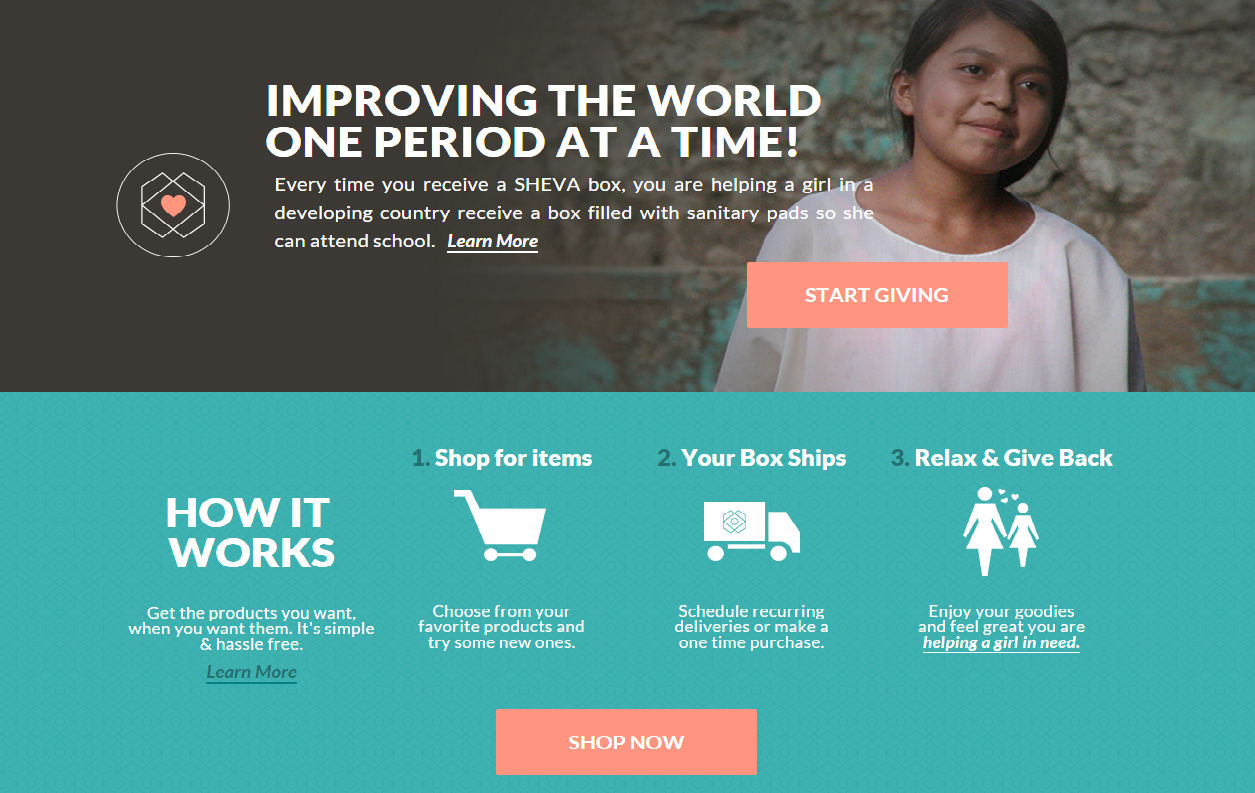
Sheva – Girl Power meets eShop
Marisabel Ruiz (Exchange Student, Faculty of Social Sciences 2010-2011)
“I was born in Guatemala but I lived in the city,” said Marisabel Ruiz, a 26-year-old who founded Sheva.com. Her online store sells female hygiene products and donates sanitary towels to those who cannot afford them.
“I didn’t know that rural areas in my home country also have girls who use newspapers, dried leaves and cloth as sanitary pads.
They leak easily and are very unhygienic.”
Ruiz was first made aware of the subject two years ago whilst, as an exchange student at HKU, she took part in a summer ervice trip (Impact For Peace) organised by CEDARS.
“We went to Kolkata, India to teach children English and I found out that some girls were skipping classes because of their menstruation,” said Ruiz. “After some Internet research, I realised that Guatemala is as bad.” According to Ruiz, only 12%
of India’s women use sanitary products and more than 50% of girls in Guatemala drop out of school after their first period. The
discovery marked the beginning of her mission for girl-empowerment.
Ruiz initially attempted to talk companies into donating female hygiene products to people in need. But after receiving several
rejections, she decided to make her idea a self-sustainable project. “I was lucky because my family and friends supported me financially.”
In 2013, the business and economics alumna founded Sheva with a vision for social impact. For every box of sanitary towels or tampons purchased online, the company would donate a month’s supply of napkins to girls in Guatemala.
“The magic of Sheva is that you have to use female hygiene products every month. There is always a need. Women can regularly help other women by buying women stuff!” commented Ruiz.
Sheva, which was launched in October, receives at least 1,000 hits per day. “We also took quite a lot of orders in the first two weeks. I can’t tell you exactly how many as this is our secret,” said Ruiz. “But most orders were from the United States.”
 The company is based in New York and Guatemala. Ruiz aims to expand her business so as to serve one million underprivileged girls worldwide by 2020.
The company is based in New York and Guatemala. Ruiz aims to expand her business so as to serve one million underprivileged girls worldwide by 2020.
“Our future plan is to add products for women who are going through menopause and women experiencing incontinence,” said
Ruiz.
The startup is also looking into making biodegradable napkins out of banana and coconut fibres. “I want to bring Sheva everywhere and Hong Kong is definitely on my list,” said Ruiz, who is currently seeking local partnership and collaboration.



